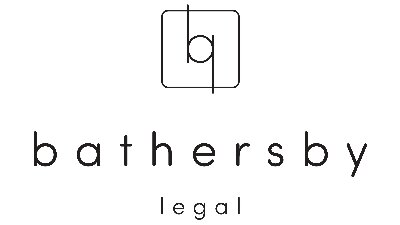New labour hire laws – do I need a labour licence?
Queensland, South Australia and Victoria have introduced new labour hire laws imposing licensing requirements and reporting obligations on many businesses.
The licensing schemes emanate from parliamentary enquiries into working conditions incidental to the increasing use of casual, short-term contract, independent contractor, and labour hire arrangements.
In Queensland, the Labour Hire Licensing Act 2017 (Qld) (‘the Act’) aims to protect vulnerable workers from exploitation and address inappropriate business practices through a mandatory licensing scheme for labour hire providers. Similar legislation is in place in South Australia and Victoria respectively through the Labour Hire Licensing Act 2017 (SA) and Labour Hire Licensing Act 2018 (Vic).
Who is affected by the new laws?
Entities providing and retaining labour hire services are affected.
The Act requires a ‘provider’ of ‘labour hire services’ to be licensed. A ‘provider’ is defined as a person who supplies a ‘worker’ to another person (host) to perform work during the course of conducting a business.
A ‘worker’ is somebody who has an ‘arrangement’ with the provider to perform work for a host and who is paid by the provider to perform that work.
The Act provides specific examples of a provider, including:-
• a contractor who supplies workers to a farmer or fruit grower to pick produce for the farmer or grower;
• a group training organisation or principal employer organisation under the Further Education and Training Act 2014 that supplies an apprentice or trainee to an employer; and
• an employment agency who on-hires temporary administration staff to a business.
The scope of the Act is broad with potential to capture non-traditional labour hire arrangements such as business supply chains, procurement and contracting arrangements. For example, in Queensland the Act applies regardless of:
(a) whether or not the worker is an employee of the provider; and
(b) whether or not a contract is entered into between the worker and the provider, or between the provider and the person to whom the worker is supplied; and
(c) whether the worker is supplied by the provider to another person directly or indirectly through one or more agents or intermediaries; and
(d) whether the work done by the worker is under the control of the provider, the person to whom the worker is supplied or another person.
Variations between state legislation
Although each state’s legislation is similar, there are discrete nuances such as how the respective schemes interact with other legislation, various definitions including exempt work arrangements, and the penalties for non-compliance.
In Queensland, the Labour Hire Licensing Regulation 2018 (Qld) provides that secondees, high income earners, in-house employees (including consultants) and labour hire arrangements between interrelated companies are exempt.
Commencement, transitioning periods and the way that each state defines the scope and operation of the new laws also vary.
Queensland’s scheme is now fully operational, the South Australian Act commenced on 1 March 2018 with its transition period extended to 1 February 2019, and Victoria will commence no later than 1 November 2019.
Entities should obtain appropriate advice specific to their location and business activities.
Licensing and compliance under the new scheme
If your business activities fall within the scope of the new scheme you must hold a licence to operate. The duration and renewal requirements for a licence, once granted, vary between each state.
You should evaluate your labour hire arrangements and legislation applicable in your jurisdiction to determine whether you are a ‘provider’ and will therefore, need to hold a licence.
Licence holders must apply with the relevant government authority and pass a ‘fit and proper person test’ which essentially focuses on the financial stability of the entity and compliance with workplace safety and corporate requirements.
Licence holders will be listed in a publicly accessible register and must ensure compliance with all laws relevant to operating the business and employing workers. Licence holders must also undertake mandatory reporting activities.
Enforcement and penalties
Failure to comply with the requirements under the new laws attract a range of penalties including monetary fines for both individuals and corporations, suspension or cancellation of a licence, and imprisonment.
In Queensland, the penalties for operating without a licence are $134,988 for an individual or three years’ imprisonment, and $391,650 for a corporation.
Other offences include engaging an unlicensed provider, entering avoidance arrangements, advertising that a person or entity is willing to provide labour hire without being licenced and failing to comply with reporting requirements
Inspectors are empowered to monitor compliance, audit labour hire providers and investigate suspected breaches under the Act.
Getting advice
You may be caught by the Act regardless of your location. You should therefore, evaluate your labour hire activities to ascertain how the new scheme affects you, whether as a provider or recipient of labour hire services.
It is recommended that you obtain advice regarding your obligations under the scheme and to review your procurement and service agreements to ensure compliance.
